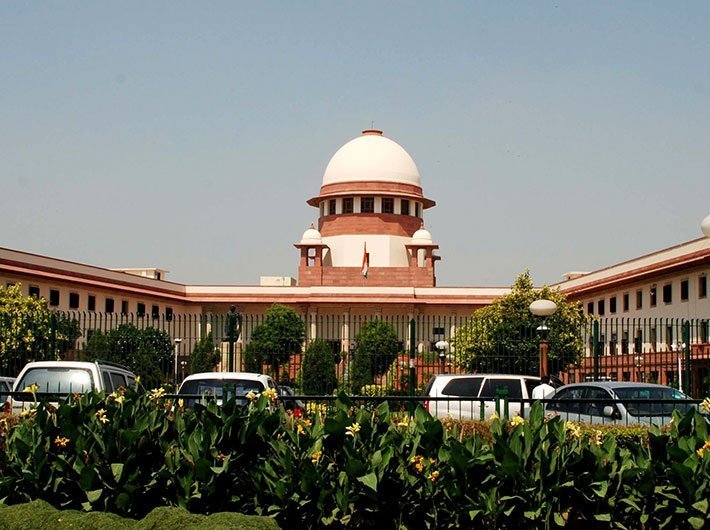“Laudable,” agrees solicitor general: apex court stress there should be spirit of cooperation
Mumbai, once the epicentre of the pandemic in India, has emerged as a model for all others in mitigating the crisis. The supreme court on Wednesday said the central government should adopt and take lessons from the Mumbai model to manage liquid medical oxygen supply for Covid-19 patients in Delhi.
The apex court directed that a Delhi government official and central government official should engage with the BrihanMumbai municipal corporation (BMC) officials to augment the supply of oxygen for Delhi.
“There is a wealth of information coming every day. The BMC is doing some great work – with no disrespect to Delhi. What are they doing? How are they managing? We can learn from them. I understand that Maharashtra also produces oxygen which Delhi can’t do, but if a great metropolis like Mumbai could do it, Delhi could also take some lesson,” said a bench comprising justices DY Chandrachud and MR Shah.
The court suggested that the chief secretaries and health secretaries of both Delhi govt and central govt have a discussion with the BMC commissioner to draw lessons from Mumbai’s experiences. “We will have a fairly successful model in global metropolis in Delhi. We want to [do] what was done in a large metropolis like Mumbai and how it can be emulated as we are answerable to citizens of Delhi.”
Solicitor General Tushar Mehta also agreed that the Mumbai model, which managed with 275 MT of oxygen when active cases numbered 92,000, was “laudable” and said it is “not a political model”. “As an officer of the court, not for the centre or state, we need to find a solution. People cannot run from pillar to post. This is not to undermine the efforts of Delhi,” he said.
“There has been a consensus that a team of officers from the Delhi govt and the centre will engage within next three days with the officials and medical experts of municipal corporation of Greater Mumbai (MCGM) and derive some learnings from the modalities which were followed in augmenting oxygen supply. Based on these shared experiences steps can be taken for replicating the administrative arrangements in Mumbai in Delhi,” the court said in its order.
The centre had moved the supreme court on Wednesday against a Delhi high court order. The high court had issued a show-cause notice to the centre Tuesday asking why contempt proceedings should not be initiated against it for not complying with its order to provide 490 metric tonnes of oxygen to Delhi. The supreme court stayed the order.
A high court division bench comprising justices Vipin Sanghi and Rekha Palli had directed the presence of union minister Piyush Goyal and central government officer Sumita Dawra, who are handling oxygen allocation to states, on May 5 to explain the failure to comply with the high court and supreme court’s order to supply oxygen to the Delhi government for treatment of critical Covid patients.
The apex court also said that the high court order – hauling up officers and taking recourse to contempt jurisdiction – will not resolve the problems confronting Delhi. When the country is facing the pandemic the effort of the court must be to solve the problem by actively engaging with stakeholders, it said. “There should be spirit of cooperation.”
The court also said that the central government has to comply with its April 30 order to increase supply of medical oxygen and to place before it an affidavit with a with a tabulated chart indicating the manner in which the centre will comply with the order to supply 700 metric tonnes of medical oxygen. The plan should indicate (1) sources of supply, (2) provision for transportation and (3) logistical arrangements necessary and placed before the bench at 10.30 am Thursday.
The SG explained that the allocation of medical oxygen quota for each state is on the basis of a formula evolved by experts. The demand of each state is projected on hospital beds and Covid cases and based on the said formula demand made by Delhi govt for 700 MT.
Justice Chandrachud then asked if the said evolved formula is scientific and said the formula was based on an assumption that 100% ICU beds need oxygen and 50% non-ICU beds need oxygen.
He noted that formula needs to be evolved scientifically and observed, “Different states are peaking at different points in time, so you cannot have general assessment for the entire country.” He questioned if such a “rough and ready” formula is really scientific and said it needs to be done more scientifically.
When the SG said, “We don’t have unlimited oxygen, so we have to rationalise it. If they have 500 [metric tonnes] they will be able to manage”, Justice Chandrachud said, “We are answerable to the citizens. As judges we don't have contact with as many people as you are. But officers in my office tell, lawyers are crying, asking for help. 550 [metric tonnes] is not sufficient. The ground situation shows that.”
The court then said on May 10, it will look at the issue whether a scientific audit can be done by the Delhi govt or the health sector or other stakeholders.
On May 2, in a suo motu PIL no. 4 of 2020, the Nagpur bench of the Bombay high court during an emergency hearing to ensure compliance with its directions regarding supply of Remdesivir vials by way of interim relief to Nagpur, Akola and Bhandara as per the order dated April 30 also suggested that the central control room for Nagpur for all aspects of Covid management could be set up on the Mumbai model.
“The Nagpur district collector and the commissioner of the Nagpur municipal corporation may adopt the model adopted and devised by the municipal corporation Mumbai, under the leadership of Mr Iqbal Singh Chahal,” it said.

